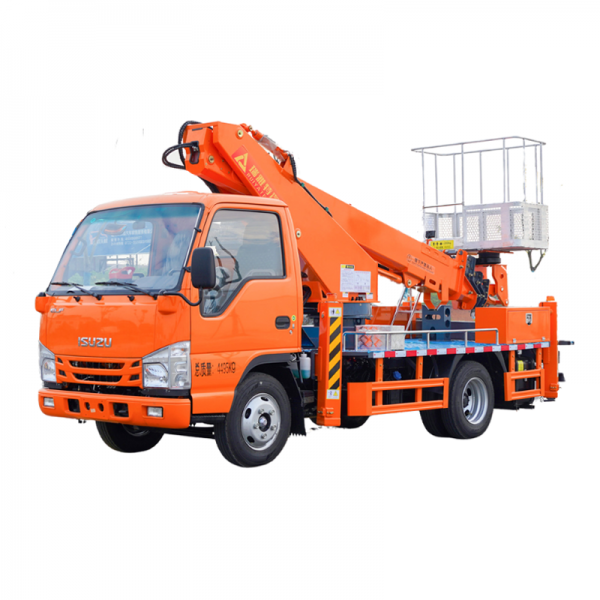Introduction
Waste management is a critical aspect of urban living, and garbage compactor trucks play a vital role in keeping our cities clean and hygienic. These specialized vehicles are designed to collect, compress, and transport solid waste efficiently. Over the years, garbage compactor truck technology has evolved significantly, incorporating innovative features to enhance performance, safety, and environmental sustainability. In this article, we will explore the evolution of garbage compactor truck technology, from its humble beginnings to the cutting-edge solutions of today.
Historical Development of Garbage Compactor Trucks
The concept of garbage collection dates back to ancient civilizations, where waste was often disposed of in designated areas outside city limits. As urban populations grew, the need for more efficient waste management systems became apparent. In the 19th century, horse-drawn carts were used to collect and transport garbage in cities like London and New York. However, these methods were labor-intensive and unsanitary.
The first mechanized garbage collection system was introduced in the early 20th century, with the invention of the garbage compactor truck. These early models were simple in design, consisting of a truck chassis with a hydraulic compactor unit at the rear. The compactor unit was used to compress the collected waste, reducing its volume and allowing for more efficient transportation and disposal.
As technology advanced, garbage compactor trucks underwent significant improvements in terms of capacity, efficiency, and safety. Hydraulic systems were refined to provide greater compaction force, allowing trucks to collect more waste in fewer trips. The introduction of automated loading mechanisms further enhanced efficiency, reducing the manual labor required for waste collection.
Modern Features and Innovations in Garbage Compactor Truck Technology
Today, garbage compactor trucks are equipped with a range of advanced features and technologies to improve performance and environmental sustainability. Some of the key innovations include:
1. Automated Collection Systems: Modern garbage compactor trucks are equipped with automated collection systems that use robotic arms to lift and empty waste bins into the compactor unit. This technology reduces the need for manual handling of waste, improving efficiency and worker safety.
2. Telematics and GPS Tracking: Many garbage compactor trucks are now equipped with telematics systems that provide real-time data on vehicle performance, route optimization, and maintenance scheduling. GPS tracking allows operators to monitor the location of trucks and optimize collection routes for maximum efficiency.
3. Waste Separation and Recycling: Some advanced garbage compactor trucks are equipped with onboard waste separation and recycling systems. These systems sort different types of waste materials, such as paper, plastic, and metal, allowing for more efficient recycling and disposal processes.
4. Emission Control Systems: To reduce environmental impact, many modern garbage compactor trucks are equipped with emission control systems that minimize exhaust pollutants. These systems help to improve air quality and meet stringent environmental regulations.

5. Enhanced Safety Features: Safety is a top priority in waste management operations, and garbage compactor trucks are now equipped with advanced safety features such as backup cameras, collision detection systems, and automatic braking technology. These features help to prevent accidents and protect workers and pedestrians.
6. Lightweight Materials and Design: Manufacturers are increasingly using lightweight materials such as aluminum and composite alloys to reduce the weight of garbage compactor trucks. Lighter trucks require less fuel to operate, resulting in lower operating costs and reduced carbon emissions.
7. Solar Power Integration: Some innovative garbage compactor trucks are equipped with solar panels that provide auxiliary power for onboard systems, reducing reliance on fossil fuels and lowering operating costs. Solar power integration is a sustainable solution that helps to reduce the environmental impact of waste collection operations.
Challenges and Future Trends in Garbage Compactor Truck Technology
As garbage compactor truck technology continues to evolve, several challenges and future trends are shaping the industry. Some of the key challenges include:
1. Waste Management Infrastructure: In many developing countries, waste management infrastructure is inadequate, leading to inefficient collection and disposal processes. Improving infrastructure and implementing modern waste management practices are essential to address this challenge.
2. Sustainability and Environmental Impact: Waste collection and disposal have a significant environmental impact, contributing to pollution and climate change. Future garbage compactor trucks will need to focus on sustainability by incorporating eco-friendly technologies and practices.
3. work truck for sale and Predictive Maintenance: The integration of data analytics and predictive maintenance in garbage compactor trucks can help optimize fleet operations, reduce downtime, and lower maintenance costs. Utilizing real-time data and analytics will be crucial for improving efficiency and performance.
4. Electric and Autonomous Vehicles: The adoption of electric and autonomous garbage compactor trucks is a growing trend in the industry. Electric vehicles offer a cleaner alternative to traditional diesel trucks, reducing emissions and operating costs. Autonomous vehicles have the potential to improve safety and efficiency by eliminating the need for human drivers.
5. Circular Economy Practices: Embracing circular economy practices, such as waste reduction, reuse, and recycling, is essential for creating a sustainable waste management system. Garbage compactor trucks will play a crucial role in supporting these practices by enabling efficient collection and processing of recyclable materials.
Conclusion
Garbage compactor trucks have come a long way since their inception, evolving into sophisticated vehicles equipped with advanced technologies to improve performance, efficiency, and sustainability. From automated collection systems to emission control technology, modern garbage compactor trucks are at the forefront of innovation in waste management. As cities grapple with the challenges of urbanization and environmental sustainability, the role of garbage compactor trucks will continue to be crucial in creating clean, healthy, and sustainable urban environments. By embracing the latest trends and technologies, the waste management industry can revolutionize the way we collect, process, and dispose of waste, paving the way for a cleaner and greener future.
